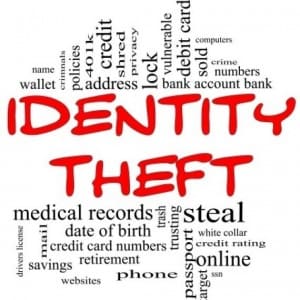
Review your annual credit Report for fraud – The FACT Act of 2003 entitles you to a free credit report once a year from the three credit bureaus. The reports should be examined for fraudulent activity. To obtain your free annual credit report, either order online via www.annualcreditreport.com, or by telephone at ( 877) 322-8228. For the mail-in form, go to https://www.annualcreditreport.com/cra/ requestformfinal.pdf.
Avoid carrying personal information – Only carry essential cards for everyday use. Wallets and pocket books are prime targets and their contents will make you vulnerable to identity theft if stolen. Do not leave personal information in your vehicle. Keep this information secure at work and when travelling.
Keep your computer safe – We live in a world of viruses and hackers, so never open up unusual email from unknown sources. Install virus protection software, which will help protect from worms and viruses. Install a firewall to help stop hackers from stealing personal data. All stored data should be encrypted and password protected. When the time comes to dispose of your old computer, use software that securely wipes your hard drive, do not rely on the delete function to remove sensitive information.
Only transact over secure websites – When using the internet for purchases be very conscious of the websites you are using. Be sure they use secure data transmission and implement strong security and privacy policies.
Keep your mail safe – Many people now use commercial mail-boxes or P.O. mailboxes to safeguard their mail, on an every-day basis, even when away for extended periods of time.
Store sensitive information securely – Secure storage is essential, especially if you have roommates, employ outside help, or you are having work done by outside contractors. Make copies of all accounts with expiration dates and customer service phone numbers and store securely, so you are ready for immediate action if the cards are lost or stolen.
Check all statements thoroughly for improper use – This includes Social Security, phone, bank accounts and credit card statements. Your Social Security statement is mailed about 3 months before the birthday.
Keep your checks safe – Mail payments inside post offices. Don’t use drop boxes at work or your own mailbox for pick up. Stolen checks can be altered and cashed. Pick up your new checks from the bank, instead of having them mailed. Store cancelled checks in a safe place.
Keep the number of credit cards to a minimum – Cancelling credit cards can negatively affect credit scores, but keeping unused accounts provides a potential target for identity thieves. Track new or reissued cards that have been sent to you; contact the issuer if the card does not show up within two weeks.
Keep passwords and PINs safe – Passwords to accounts should be alphanumeric (combination of letters and numbers). Thieves are looking for the easily guessed names and numbers. Children’s, mother’s maiden and pet names are predictable and should be avoided. Easily guessed pass codes should be avoided i.e. the last four digits of your Social Security number or birthdates. Create unusual passwords and keep a record of them in a safe place but never carry them with you. Set up additional passwords and more sophisticated security where allowed.
Don’t be careless – Be mindful of where you keep your shopping receipts, although most receipts no longer contain sensitive information. Be mindful of who is watching over your shoulder, when entering ATM codes. Never drop your guard even if nobody is standing behind you.
Stop unrequested marketing – There are steps you can take to stop annoying and unsafe marketing that you may encounter. Call 1-888-5-optout to have the three credit bureaus permanently remove your name from marketing lists. This will limit the pre-approved credit offers you receive that can be used to obtain fraudulent credit cards in your name. You can also visit www.donotcall.gov or call 888-382-1222. They will place your name on the National Do-Not-Call Registry. You can call your State office and add your name to the Do-Not-Call list, if they have one. Never allow any financial information to be shared with other financial institutions, credit card companies, insurance or investment firms.
Source: Secura
Additional resources regarding Identity Theft:
Federal Trade Commission -Â Identity Theft: What To Know, What to Do
National Crime Prevention Council – Tips to Prevent Identity Theft
